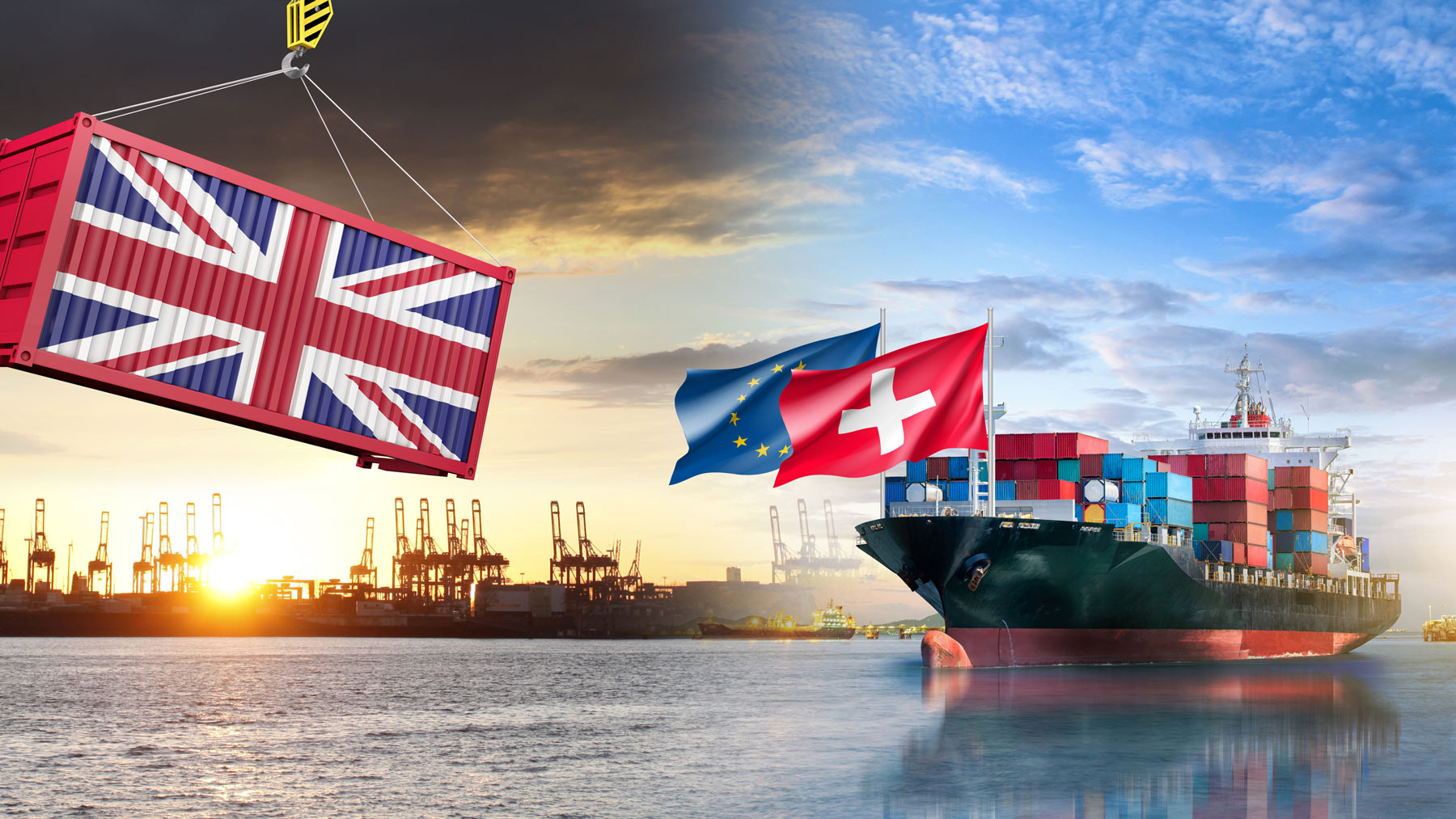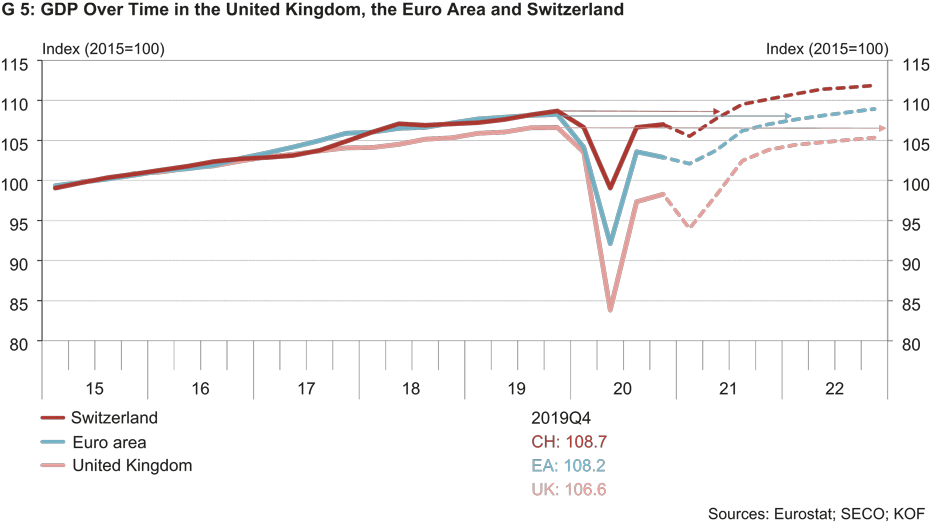Lessons from Brexit
- Europe
- KOF Bulletin
A webinar entitled ‘KOF Beyond the Borders’ saw representatives from academia and the media discuss Brexit and the question of what lessons can be learned from the UK’s experience that could be applied to Switzerland.

By implementing Brexit, the United Kingdom has scored an own goal: the disadvantages of leaving the European Union outweigh the advantages both economically and politically. In this respect, the UK serves to only a limited extent as a role model for Switzerland and its policy on Europe. These were the unanimous findings of a webinar entitled ‘KOF Beyond the Borders’ on the topic of ‘Brexit done – how should the UK position itself and will Switzerland now become its strongest ally?’ with experts Paul de Grauwe from the London School of Economics and Political Science, Haig Simonian as Co-President of the British-Swiss Chamber of Commerce, and KOF Director Jan-Egbert Sturm. In addition, the following lessons can be drawn from this event, which was moderated by the SRF’s UK correspondent Henriette Engbersen:
- The United Kingdom has more sovereignty but less political power as a result of Brexit. The UK has 66 million inhabitants. But, according to Paul de Grauwe’s analysis, the nostalgic British pro-Brexit elite sees their country as being on a par with much larger countries such as China and the United States. This is a misconception. Compared with China, the US and the EU, the UK is now a ‘rule-taker’, while the great powers are the ‘rule-makers’. As a result of Brexit, the UK has hardly any negotiating power left to push through free-trade agreements that are advantageous to it. The British will now be forced to accept external environmental, labour and safety standards. Britain’s room for manoeuvre would have been much greater within the EU, said the professor of international economics. Australia, for example, had imposed conditions on the UK in the area of agriculture that the country could never have enforced against the EU. “You cannot have full sovereignty and free market access in world trade at the same time,” de Grauwe explained. The examples of Belgium and the Netherlands show that even a small member state can influence EU rules and become a rule-maker within the EU.
- Brexit is weakening Britain’s economic growth. As in all European countries, the coronavirus crisis has caused gross domestic product in the UK to plummet. But, as Jan-Egbert Sturm made clear in his presentation, Britain’s growth path was already below the growth paths of both the euro area and Switzerland in the years before the COVID-19 pandemic (see G 5). Moreover, the UK’s coronavirus-induced slump was much more severe than in the rest of Europe. The Bank of England is forecasting record GDP growth of 7.25 per cent for 2021. But this cheering message is only part of the truth, said Sturm. If you look at long-term growth rates and KOF’s forecast up to 2022, the UK lags well behind the growth rates of both Switzerland and the euro area. "Brexit is visible in the hard data," he added, even if the coronavirus crisis masks the full Brexit effect so that its exact extent cannot be calculated.
- Although Switzerland has much in common with the UK, there are differences. Haig Simonian, a native Briton who has lived in Switzerland for many years, sees much in common between the mentalities of the two countries. Both Switzerland and the United Kingdom attach great importance to their independence and political sovereignty and therefore have an ambivalent relationship with Brussels and the EU. There are also parallels in the structure of their economies. Both countries have a strong financial sector, the former Financial Times journalist explained. However, their geographical situations are not entirely comparable, as Sturm emphasised. As an island with eight times the population of Switzerland, the UK can afford to be further away from the EU. Switzerland, on the other hand, is in the middle of Europe and is therefore even more dependent on smooth economic cooperation with its neighbouring countries. In this context Sturm advocated a framework agreement between Switzerland and the EU, which would replace static bilateral arrangements with a mechanism for rule updates.

A recording of the event entitled ‘Brexit done – how should the UK position itself and will Switzerland now become its strongest ally?’ is available here.
Contacts
Director of KOF Swiss Economic Institute
Professur f. Wirtschaftsforschung
Leonhardstrasse 21
8092
Zürich
Switzerland
KOF Bereich Zentrale Dienste
Leonhardstrasse 21
8092
Zürich
Switzerland